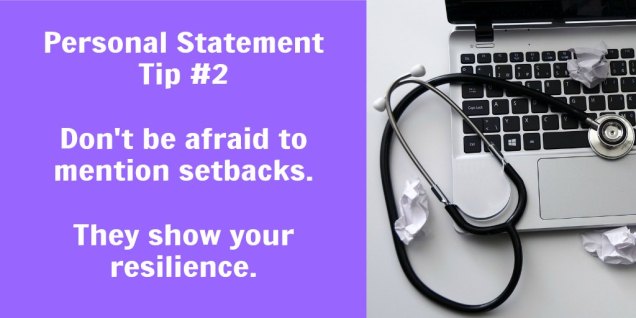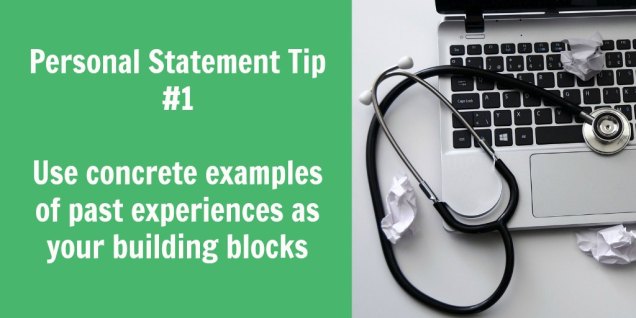
If you’re preparing a personal statement for a med school, law school, grad school, or medical residency program, you may think that you should focus only on your successes. After all, if you’re trying to impress an admissions committee and show them why you’re a strong candidate for their program, why would you want to focus on times when things didn’t go well?
Although it may seem somewhat counterintuitive to talk about setbacks and failures in your personal statement, the truth is that they can reveal an important quality about you: your resilience.
Med school, law school, grad school, and medical residency are tough, so admissions committees want to know how well you handle situations when things don’t go your way (e.g., a setback while playing sports, a challenging interaction at a volunteer placement, or a research project that didn’t go as planned).
It may sound impressive to be able to say that you’ve never failed at anything in your life, but an admissions committee can take this a very different way. If you’ve never experienced failure, how can they be confident that you’ll be able to persevere through tough times in school and in your career?
Because admissions committee value resilience in applicants, you can make a strong case for yourself by describing a setback, demonstrating self-awareness, and explaining how the experience helped you grow.
For example, did you have a hard time interacting with a nursing home resident who had just lost his wife? Describe the experience and explain how it helped you develop stronger interpersonal skills. Did your honours thesis research project yield nonsignificant results? Explain what you learned about the research process from this experience. The key is to show the admissions committee how you were able to persevere through a challenging situation and become an even stronger candidate because of it.
Note that although people agree that admissions committees like hearing about how you’ve persevered through a challenge, there’s a lot of debate about whether you should use your statement to acknowledge major blemishes on your application (e.g., a low grade on your transcript or a low LSAT or USMLE score). According to some people, you should keep this information out of your statement, and if anything, you should ask your referees to address it in their reference letter. Others have a different opinion: they say that you should definitely use your statement to address major weaknesses in your application head on.
Our advice falls in the middle: address a weakness in your application if you can frame it as an experience that allowed you to learn something important. Most people agree that you should avoid making excuses for weaknesses, so don’t try to argue that you had a good reason for failing a course (e.g., you were working part time while in school). Instead, explain how this experience allowed you to learn something that you then used to improve your performance (e.g., you realized that you needed to change your time management approach if you were going to work while going to school).
As you can see, failures and setbacks aren’t necessarily out of place in personal statements. If you can use them as a springboard to demonstrate your resilience and self-awareness, they can make your application stronger.
————————————————————————-
In our guide “How to Write a Medical School Personal Statement: A Step-By-Step Process,” we provide a detailed method for writing a personal statement and give tips and worksheets to help you complete each step. Although this guide is geared toward medical school applicants, many of the points in the guide are relevant to all types of personal statements for academic programs. Download a copy of the personal statement eguide.
————————————————————————-
Need some help polishing your personal statement? We can help. Get an instant quote here.
Inpression Editing | Online editing, copywriting, and coaching | www.inpression.io
